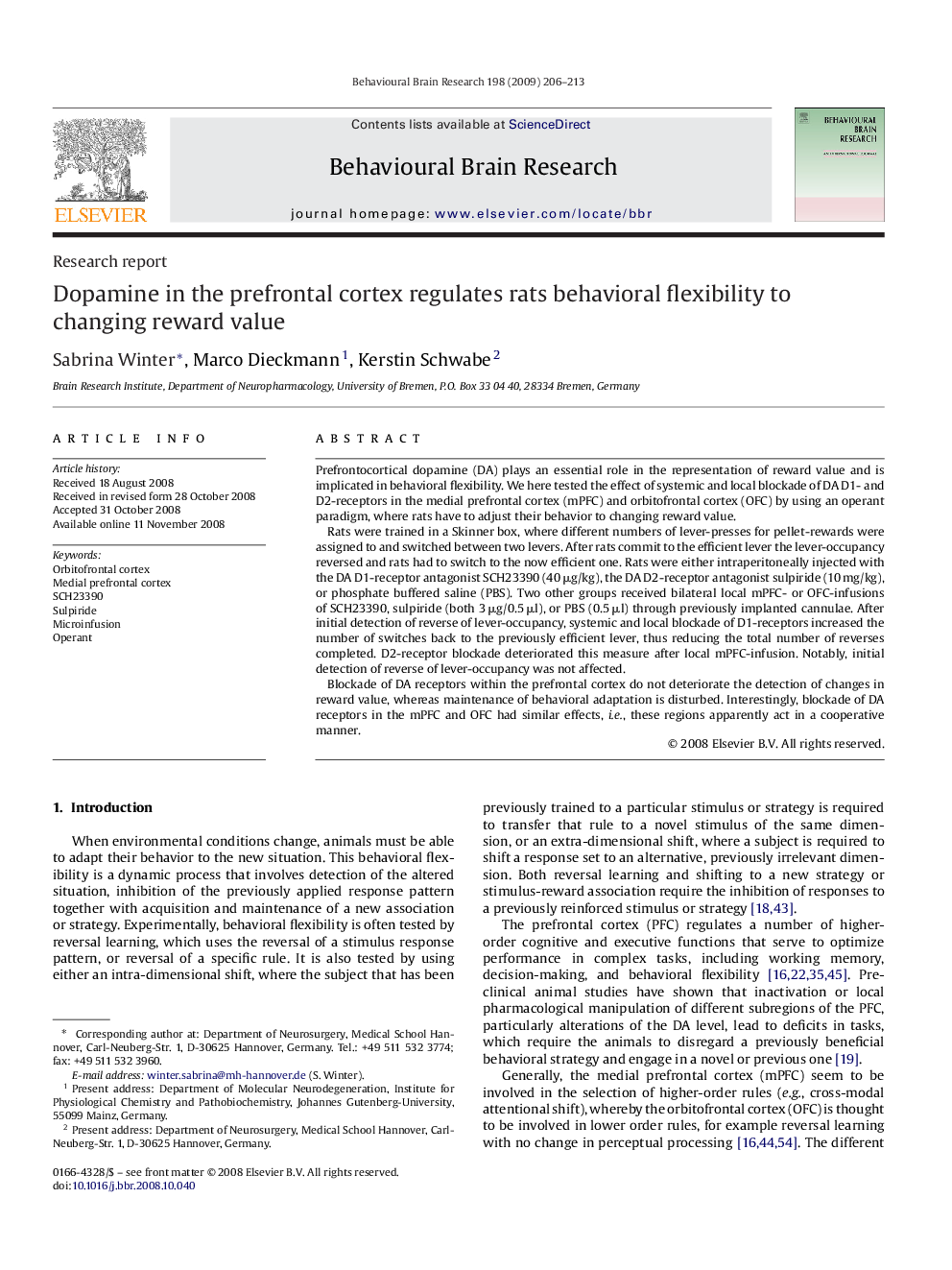| Article ID | Journal | Published Year | Pages | File Type |
|---|---|---|---|---|
| 4315015 | Behavioural Brain Research | 2009 | 8 Pages |
Prefrontocortical dopamine (DA) plays an essential role in the representation of reward value and is implicated in behavioral flexibility. We here tested the effect of systemic and local blockade of DA D1- and D2-receptors in the medial prefrontal cortex (mPFC) and orbitofrontal cortex (OFC) by using an operant paradigm, where rats have to adjust their behavior to changing reward value.Rats were trained in a Skinner box, where different numbers of lever-presses for pellet-rewards were assigned to and switched between two levers. After rats commit to the efficient lever the lever-occupancy reversed and rats had to switch to the now efficient one. Rats were either intraperitoneally injected with the DA D1-receptor antagonist SCH23390 (40 μg/kg), the DA D2-receptor antagonist sulpiride (10 mg/kg), or phosphate buffered saline (PBS). Two other groups received bilateral local mPFC- or OFC-infusions of SCH23390, sulpiride (both 3 μg/0.5 μl), or PBS (0.5 μl) through previously implanted cannulae. After initial detection of reverse of lever-occupancy, systemic and local blockade of D1-receptors increased the number of switches back to the previously efficient lever, thus reducing the total number of reverses completed. D2-receptor blockade deteriorated this measure after local mPFC-infusion. Notably, initial detection of reverse of lever-occupancy was not affected.Blockade of DA receptors within the prefrontal cortex do not deteriorate the detection of changes in reward value, whereas maintenance of behavioral adaptation is disturbed. Interestingly, blockade of DA receptors in the mPFC and OFC had similar effects, i.e., these regions apparently act in a cooperative manner.
